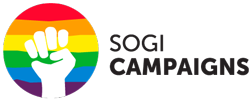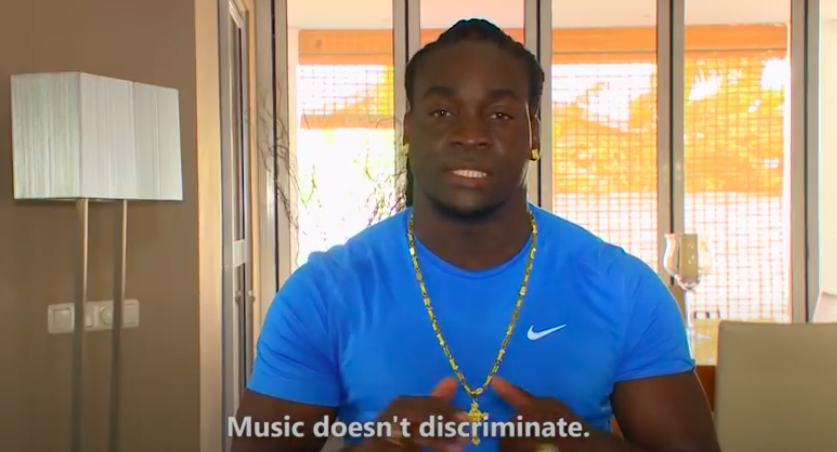People often listen more to their peers than to any “authority”. This awareness is at the heart of the approach that Suriname Men United develops in the small South American State of Suriname.
Interview with Kenneth van Emden
Kenneth, what is the challenge in your country for sexual and gender minorities?
This is really a mixed bag, where the legal situation is full of contradictions and where legal and social climates don’t always match.
On the legal front, both male and female same-sex sexual activity have legal in Suriname since 1864, so this looks progressive. But the age of consent is still today 2 years older for same-sex than for opposite-sex relationships.
Since 2015, hate speech and discrimination in employment and the provision of goods and services on the basis of sexual orientation has been banned in the country. But on the other hand, Same-sex marriage and civil unions are not recognised by law.
Public attitudes have slowly changed in recent years but large parts of the population remain very homophobic. In 2010, only 20% of the population supported marriage equality. The community also gets harassment from law enforcement. There has been a case of a transgender sex-worker who got killed by police men. These policemen were suspended but it shows that the transphobia is prevailing everywhere.
What was the activism like in Suriname before you launched this campaign? And how strong is the LGBTQI+ movement ?
Activism often develops as a reaction to attacks.
In 2011, a group of MPs have even declared that homosexuality should be cured! This actually led Surname Men United to react by organising the country’s Pride marches since then.
There also was the case of a popular song called “bullet” by rapper Sissi lamaizi, which was calling for shooting gay people. We started a campaign in Holland because we knew that the music group would go on tour in Holland. In the end 13 out of their planned 15 performances got cancelled, and when they came back to Suriname they apologized.
Tell us more about this campaign, what was the objective?
The “Bullit” affair made us realise that we had to get to the hearts and minds of a lot of people in Suriname, and that we also had to reach the Maroon community. For many reasons, homophobia and transphobia in this community if particularly strong: cultural biases, lack of information and socio-economic marginalisation all lead to a lot of toxic masculinity.
We also wanted to reach other groups, like parents, in order to create better social atmospheres for families and safe homes for children.
So how did you plan to achieve this?
it is always important to start from the existing situation. Our organisation does a lot of scoping and observation of the situation of LGBTQI+ people from the stories they share, from reports, discussions in parliament, public statements, media coverage, etc.
For each target group we had to understand where they come from, how their attitudes towards sexual and gender minorities are formed, what their levels of understanding are. For example for the Maroon community, same-sex relationships is just about anal sex. If you don’t understand their starting point, you can’t engage in a dialogue. you will only hammer down your message but this is not what gets people to change. you have to reach a middle ground.
So once you understand your target group, how do you reach out to them?
Our starting point is that people listen best to their peers. People won’t be moved by a message from us, but they will listen to someone from their own community. So we set out to find that right messenger: we first looked at who were the most popular singers in the community, and we then looked at what they were saying, what their attitudes were.
This led us to identify the singer who would be the perfect messenger for us. We approached him and we had long discussions about sexual and gender diversities and what it all meant for us. We also clearly spoke about the risks for him to engage on such an issue, and that it might cost him a part of his audience. After our discussion, he consulted with his wife and children to also get their consent, which was very ethical and considerate of him.
In the same way, we identified the 14 other messengers of the campaign: a parent, a sportsman, a person living with HIV, a trade unionist, a young person, parliamentarians, a healthcare worker, a lawyer, etc. We started to approach the people based on whom we already knew personally, which made it easier for them to get involved.
For this campaign it was important that the target audiences heard messages from different sources, rich and poor, old and young, not just from us.
Relatability was central to our approach.
So what shape did the campaign take ?
Audiovisual being so prevalent, we chose to edit short videos by each of the messengers. I sat down with them and we worked on the script together, in order to make sure they were comfortable with the whole campaign, with each word.
These videos, which I call “Human Rights clips” were disseminated through social media but we also at some stage had the budget to get them on TV, which led to a massive visibility. Fortunately the institutional climate in Suriname is good enough for TV stations to agree to broadcast pro-LGBTQI+ messages.
On social media, we chose to focus on 10 specific days for activism, like Human Rights day, International Women’s day, the International Day against Homo-Trans- and Biphobia, etc.
What impact did you see?
We saw that People were much more empowered to come out, to share their stories with their families and their communities, their friends, or at work. This campaign gave them strength to say, “I need to come out to my family & friends”.
This campaign also confirmed us as a main interlocutor for the institutions. We are regularly contacted by the ministry of justice for consultation meetings on all of their Human Rights reports for international institutions like the UN.
We also see that it is now much easier for political parties to take up the subject. For our elections next month (May 2020), several parties have put LGBTQI+ concerns on their agenda.
In general, we saw a good response from the public, though we didn’t do a formal assessment. Some TV stations gave us pro-bono airtime, which probably signals that their audience analysis reported good feedback: if people had complained they would not have done this pro-bono broadcast.
What lessons did you learn that you’d like to share with others?
1.- Know the issue that you are campaigning on: do your research, collect figures, etc.
2.- Have an “objective” approach when you are searching for allies: Don’t start from a dogmatic position: understand the background of stigma and the histories of oppression. Try as much as possible to step in your target group’s shoes and meet them halfway.
3.- Be clear on what you expect from people and be aware of what the risks are for them. Be sure to take into account the security of the people in your campaign. Especially when they are the public faces they are going to need to feel safe all the time.
4.- Have good contracts, consent forms or agreements with everyone involved.
5.- One hand feeds the other: make sure you understand what people’s motivations are to join your campaign, what’s in it for them. That way you can secure a win-win deal.
A final word?
This campaign proved successful and we will continue it. It’s important to see your strategy over time as campaigning has a cumulative effect.

